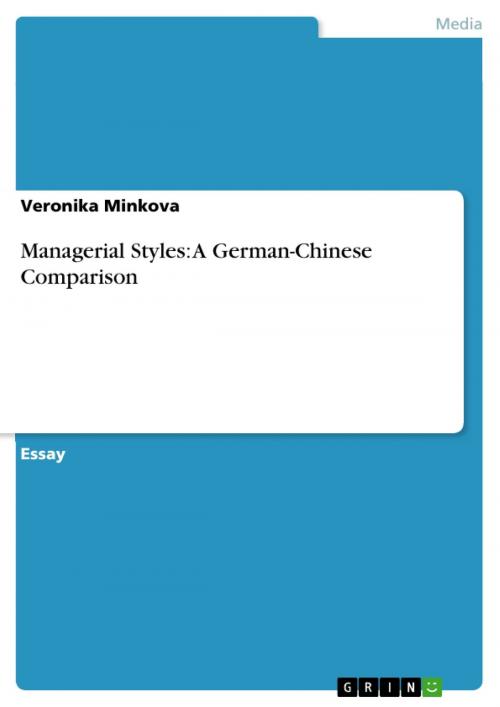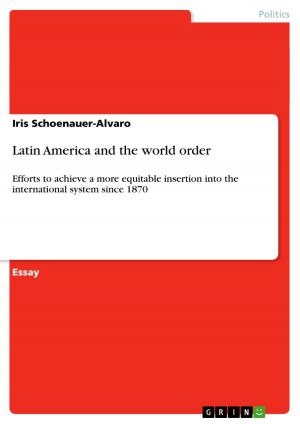Managerial Styles: A German-Chinese Comparison
Nonfiction, Reference & Language, Language Arts, Communication| Author: | Veronika Minkova | ISBN: | 9783656045762 |
| Publisher: | GRIN Publishing | Publication: | November 4, 2011 |
| Imprint: | GRIN Publishing | Language: | English |
| Author: | Veronika Minkova |
| ISBN: | 9783656045762 |
| Publisher: | GRIN Publishing |
| Publication: | November 4, 2011 |
| Imprint: | GRIN Publishing |
| Language: | English |
Essay from the year 2009 in the subject Communications - Intercultural Communication, grade: 1,3, Furtwangen University; Villingen-Schwenningen, language: English, abstract: The paramount goal of intercultural management is to revise organizational patterns in order to provide an understanding of the different approaches used by managers worldwide. Identifying significant differences in management in Germany and China is established through comparison of socio-cultural and managerial variables. Chinese leadership is characterized by more authorial rather than participative management style. This is explained by Chinese historical and cultural background. The Confucius heritage, legacy of communism, synthetic view of the world and interrelatedness of life in China are some of the essential determinants of managerial styles and social roles at all. Rationalism and objectivism, search for certainty, traditional individualism and analytical thinking are some of the key variables to shape the German managerial styles. Socio-cultural differences are examined in terms of way of thinking and perception of the world; contextual meaning and degree of group-orientation. Managerial differences are divided into three categories: organizational structure, managing processes and interpersonal relations.
Essay from the year 2009 in the subject Communications - Intercultural Communication, grade: 1,3, Furtwangen University; Villingen-Schwenningen, language: English, abstract: The paramount goal of intercultural management is to revise organizational patterns in order to provide an understanding of the different approaches used by managers worldwide. Identifying significant differences in management in Germany and China is established through comparison of socio-cultural and managerial variables. Chinese leadership is characterized by more authorial rather than participative management style. This is explained by Chinese historical and cultural background. The Confucius heritage, legacy of communism, synthetic view of the world and interrelatedness of life in China are some of the essential determinants of managerial styles and social roles at all. Rationalism and objectivism, search for certainty, traditional individualism and analytical thinking are some of the key variables to shape the German managerial styles. Socio-cultural differences are examined in terms of way of thinking and perception of the world; contextual meaning and degree of group-orientation. Managerial differences are divided into three categories: organizational structure, managing processes and interpersonal relations.















